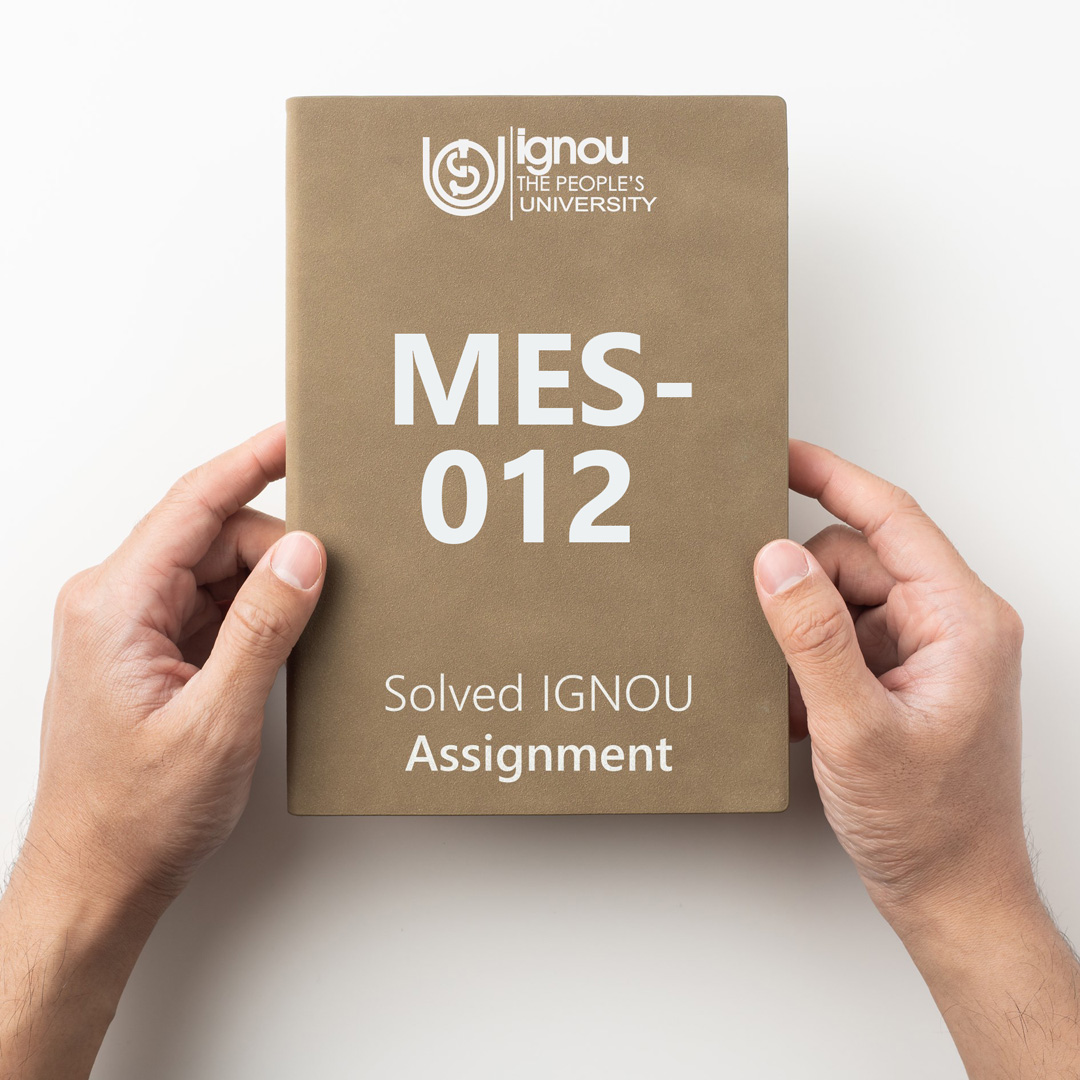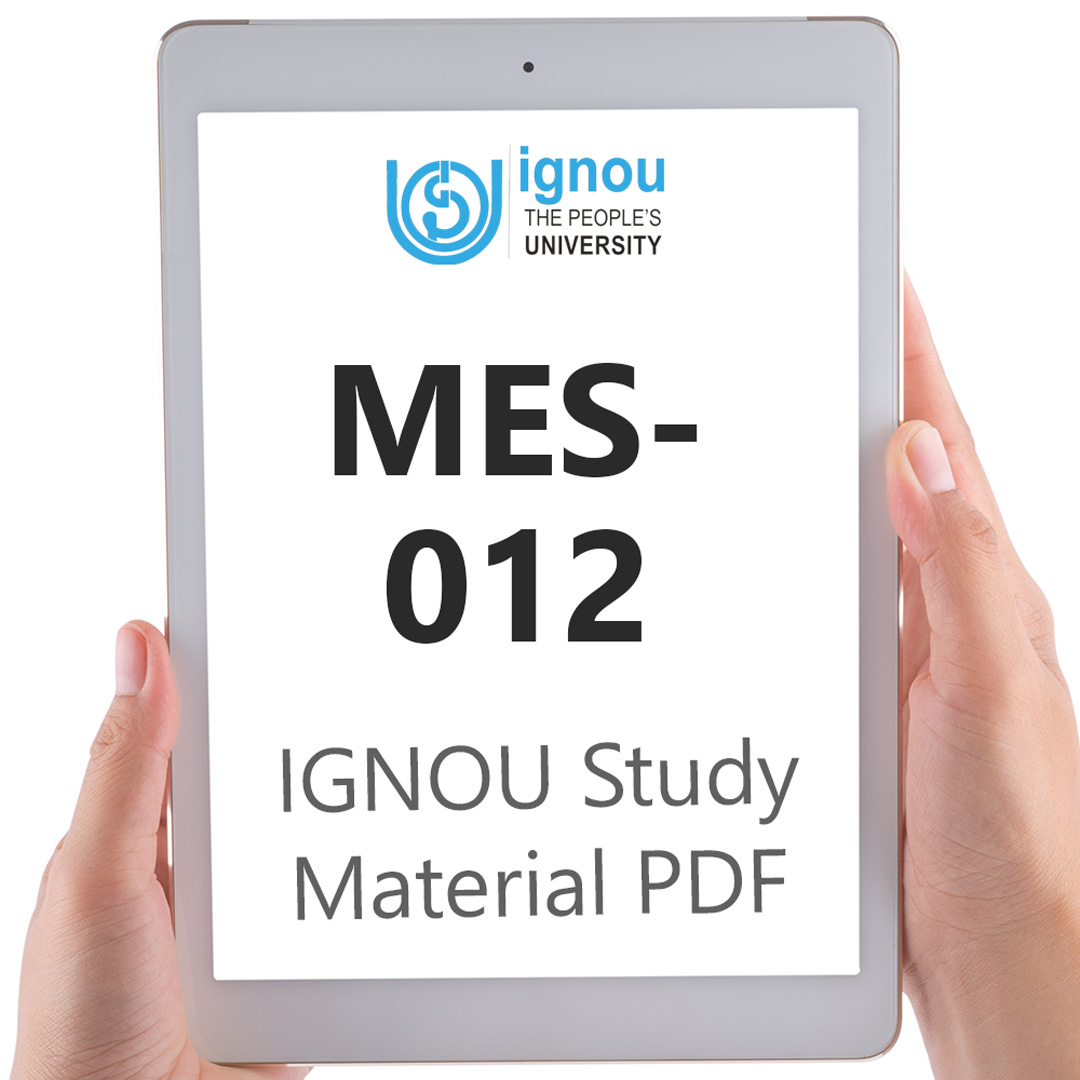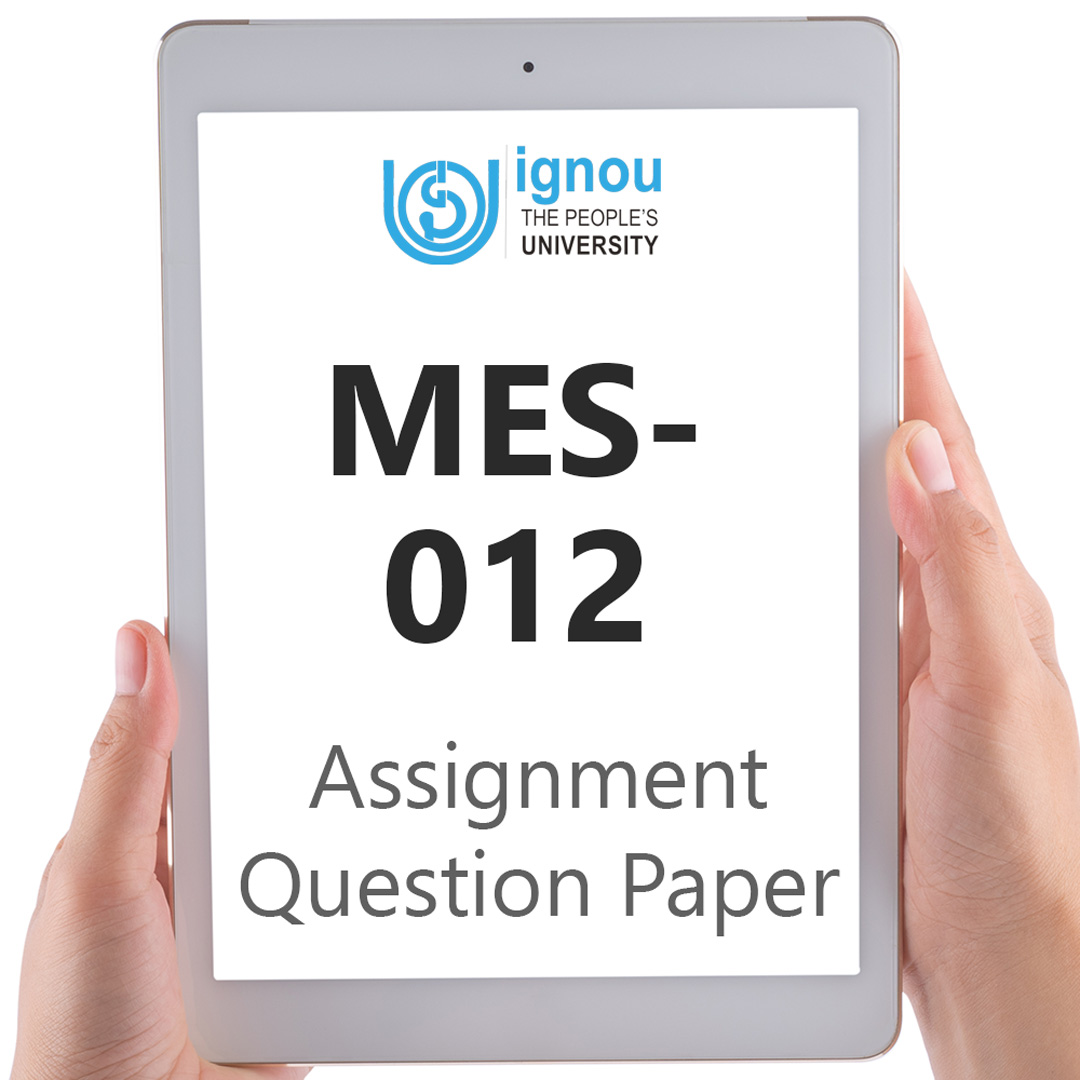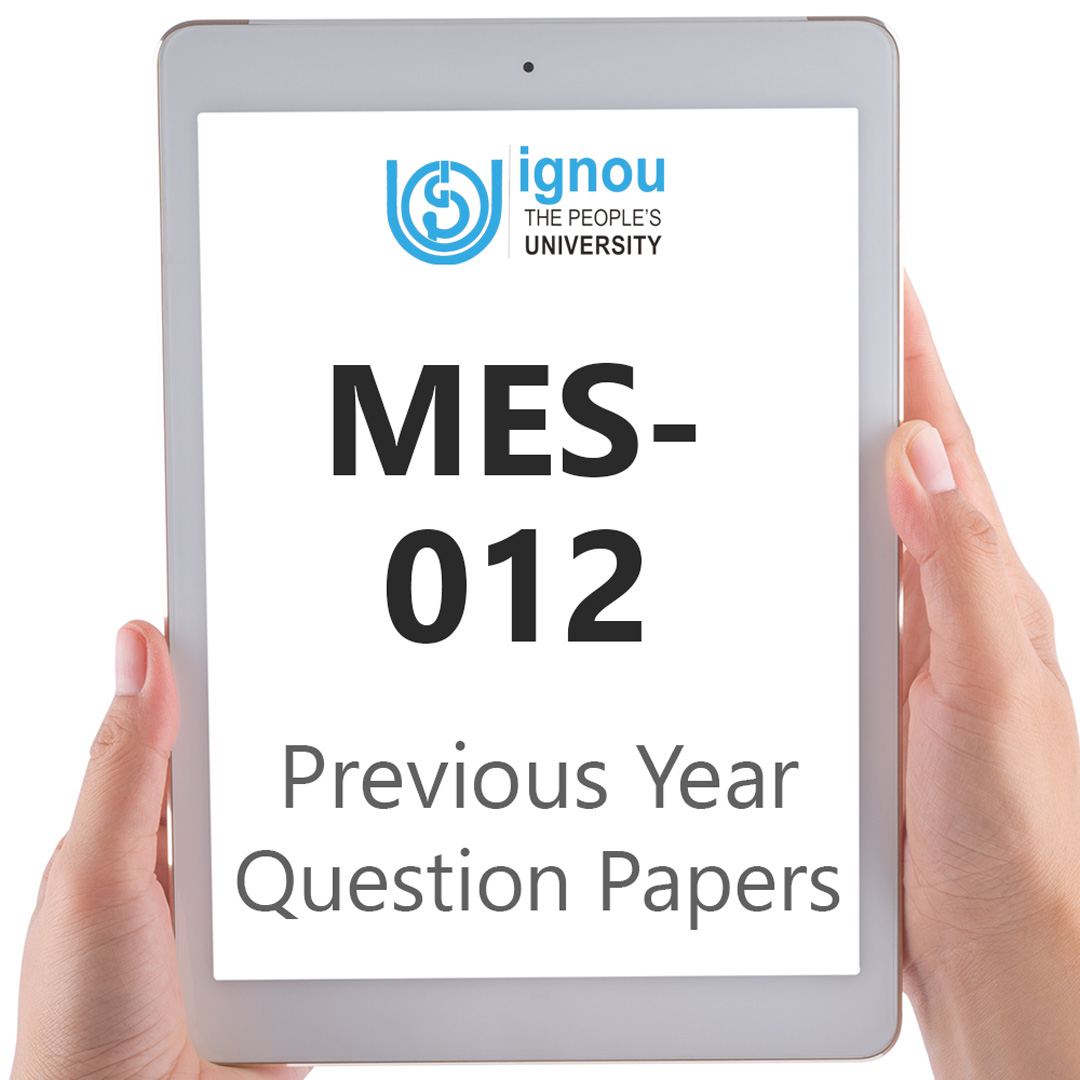If you are looking for MES-012 IGNOU Solved Assignment solution for the subject Education: Nature and Purposes, you have come to the right place. MES-012 solution on this page applies to 2023 session students studying in MAEDU courses of IGNOU.
MES-012 Solved Assignment Solution by Gyaniversity
Assignment Code: MES-012/TMA/2023
Course Code: MES-012
Assignment Name: Education: Nature and Purposes
Year: 2023
Verification Status: Verified by Professor
a) Explain the concept and types of discipline. Is Education a discipline? Justify your answer. (500 words)
Ans) In human society, behaviour and conduct are governed by a set of rules and regulations known as discipline. It entails imposing repercussions for people who disobey these norms, with the goal of encouraging order, productivity, and morality in the workplace. There are many different fields, including as education, psychology, sociology, management, and even the military, that make extensive use of discipline. Both punitive and restorative strategies are viable options when it comes to enforcing rules and regulations in educational institutions.
The employment of consequences like detention, suspension, or expulsion as a form of punitive discipline is intended to serve the purpose of punishing the student for the inappropriate behaviour that they have displayed. The goal of restorative discipline is to restore the damage that was brought about by a student's actions and to cultivate healthy connections among the student body, the teaching staff, and the rest of the school community. One further way to categorise discipline is according to the strategy that is utilised to encourage appropriate behaviour.
The three main types of discipline include authoritarian, permissive, and authoritative.
Authoritarian discipline involves the use of strict rules and punishment to control behaviour.
Permissive discipline relies on leniency and minimal rules to allow for maximum freedom.
Authoritative discipline, which is considered the most effective approach, involves the establishment of clear rules and boundaries but also allows for open communication and negotiation between the authority figures and the students.
Because it involves the study and research of theories, principles, and practises linked to teaching, learning, and educational systems, education can be regarded an academic subject in the traditional sense. The study of education as a field incorporates numerous subfields, including psychology, sociology, philosophy, and anthropology, all of which contribute to a more in-depth comprehension of the teaching and learning process. The field of education has its own specific regulations and requirements, including those that pertain to the curriculum, the assessment, and the certification of teachers. The study of education also encompasses the creation of novel instructional methods, philosophies of education, and regulations pertaining to educational procedures.
It is crucial for the field of education to play a role in the creation and advancement of educational methods that can improve learning outcomes for students and the overall quality of education. Education is distinguished from other fields of study by its inherent interdisciplinarity; as a result, it is a multifaceted and ever-evolving area of research that draws upon the knowledge of a wide range of subfields. Therefore, one could argue that education is a discipline in its own right, complete with its own rules, theories, and practises that govern the process of teaching and learning. This is because education has its own set of rules, theories, and practises that lead the teaching and learning process.
In conclusion, discipline is a broad and multifaceted concept that is applied in various fields, including education. Discipline in education involves the imposition of rules and regulations to maintain order and promote positive behaviour. Different types of disciplinary approaches exist, including authoritarian, permissive, and authoritative. Education as a discipline encompasses many different fields, with its own set of rules, theories, and practices that guide the teaching and learning process. Therefore, education can be considered a discipline in its own right, with its unique approaches and theories aimed at promoting effective teaching and learning.
b) Differentiate between Idealism and Naturalism in terms of their philosophical thoughts and aims of education. (500 words)
ans) Idealism and naturalism are two different philosophical schools of thought that have influenced the field of education for centuries. While idealism places a great emphasis on the importance of the mind, naturalism highlights the role of nature and the natural world.
The key differences between idealism and naturalism in terms of their philosophical thoughts and aims of education.
In conclusion, idealism and naturalism are two philosophical schools of thought that have different aims and approaches to education. Idealism focuses on the development of the mind and intellectual abilities, while naturalism emphasizes the importance of practical skills and knowledge that can be applied to everyday life. The teacher's role and the learning environment also differ in these two approaches. Idealism emphasizes a structured, disciplined classroom environment, while naturalism emphasizes a learning environment that is in harmony with nature. Both approaches have influenced the field of education in significant ways, and both have their strengths and weaknesses. The choice between these two approaches ultimately depends on the needs and goals of the student and the society in which they live.
c) Suppose you are a member of a curriculum development committee entrusted with developing curriculum for secondary school level in your state. Describe the steps which your committee would follow while developing the curriculum for secondary school level. (500 words)
Ans) The following activities can be participated in as a member of a curriculum development committee for the secondary school level to contribute to the development of the curriculum:
Establishing the Philosophy: The committee must first establish the philosophical orientation that will guide the development of the curriculum. This can be done by identifying the values and principles that underpin the educational system, the mission and vision of the school, and the needs of the learners, teachers, and community. The philosophy must be aligned with the goals and objectives of education and should reflect the broader societal and cultural context in which it is situated.
Assessing Needs: A needs assessment should be carried out by the committee in order to ascertain the learning needs of the students as well as the instructional needs of the instructors. This can be accomplished through the use of polls, conversations in focus groups, and various other approaches to the collection of data. The needs assessment should identify the positive and negative aspects of the existing curriculum, as well as provide information about the knowledge, attitudes, and abilities that the students need to cultivate.
Formulating Goals and Objectives: Based on the needs assessment, the committee should formulate clear and measurable goals and objectives that are aligned with the established philosophy and the identified needs. The goals and objectives must be relevant, attainable, and challenging, and they must reflect the desired learning outcomes. The goals and objectives should also be organized by subject, grade level, and other appropriate categories.
Selecting Curriculum Experiences: The committee should then select appropriate curriculum experiences that will help the students achieve the desired learning outcomes. This can be done by reviewing existing curricula, consulting with subject matter experts, and considering best practices in teaching and learning. The committee should also consider the resources available, including textbooks, digital resources, and other instructional materials.
Organizing Content: The committee should organize the content of the curriculum in a way that is logical and coherent, and that allows for the development of both subject-specific knowledge and cross-curricular skills. This can be done by developing a scope and sequence for each subject area, and by aligning the content with the goals and objectives. The committee should also consider the balance of content across subject areas and should ensure that the curriculum is culturally responsive and inclusive.
Selecting Appropriate Instructional Strategies: The committee should select appropriate instructional strategies that are aligned with the goals and objectives and that promote student learning. This can be done by considering a range of teaching methods, including lectures, discussions, group work, and project-based learning. The committee should also consider the use of technology and other resources to support student learning.
Evaluating Learning and Instruction: The committee should establish a system for evaluating student learning and instructional effectiveness. This can be done by developing formative and summative assessments, and by considering a range of assessment methods, including written tests, performance assessments, and student portfolios. The committee should also consider the use of teacher observations, student feedback, and other data to inform instructional decision-making.







